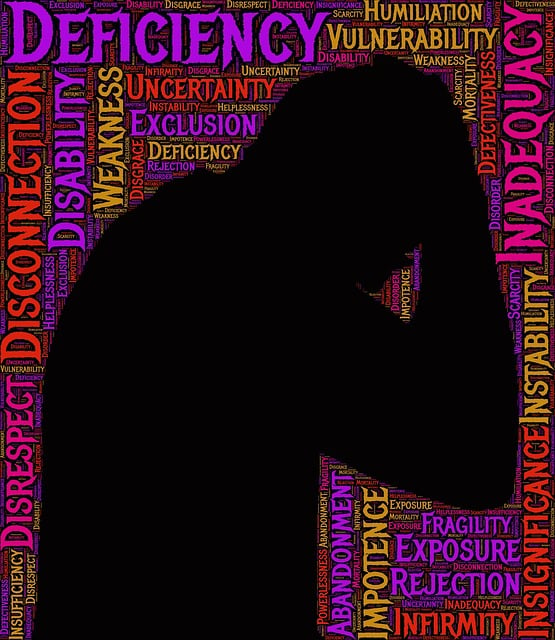Greenwood Village Couples Counseling Therapy offers specialized Crisis Intervention Teams (CITs) to manage mental health crises effectively. Trained professionals swiftly deploy structured approaches, ensuring client safety and well-being. Regular training from organizations like Stress Management Workshops enhances CIT skills in identifying warning signs, de-escalation techniques, and care coordination. The therapy center provides tailored support for couples, focusing on evidence-based practices, communication, and emotional connection strategies to improve self-esteem, mood management, and coping skills. Their comprehensive crisis intervention team training program equips professionals with practical strategies for real-world application, prioritizing emotional well-being promotion and immediate support during crises.
“Crisis intervention teams play a pivotal role in managing and mitigating high-risk situations. This article explores the intricacies of these specialized groups, with a focus on Greenwood Village Couples Counseling Therapy’s expertise. We delve into the essential components of effective crisis training programs, practical strategies for real-world application, and the evolving landscape of crisis team education. By understanding these dynamics, we can enhance support systems and improve outcomes.”
- Understanding Crisis Intervention Teams: Role and Importance
- Greenwood Village Couples Counseling Therapy: A Specialist's Perspective
- Essential Components of Effective Crisis Training Programs
- Practical Strategies for Real-World Application
- Benefits, Challenges, and Future Directions in Crisis Team Training
Understanding Crisis Intervention Teams: Role and Importance

Crisis Intervention Teams (CITs) are specialized groups within healthcare and counseling settings dedicated to providing immediate support during mental health crises. These teams play a pivotal role in Greenwood Village Couples Counseling Therapy, offering a structured approach to managing severe emotional distress and potentially life-threatening situations. By swiftly deploying trained professionals, CITs can de-escalate high-risk scenarios, ensuring client safety and well-being.
The significance of CITs lies in their ability to offer immediate crisis intervention, which is crucial for effective risk management planning among mental health professionals. Through regular training, such as those provided by organizations specializing in Stress Management Workshops, team members gain valuable skills in identifying warning signs, implementing de-escalation techniques, and coordinating care across various settings. This holistic approach not only benefits clients but also equips professionals with the Crisis Intervention Guidance needed to navigate complex mental health scenarios effectively.
Greenwood Village Couples Counseling Therapy: A Specialist's Perspective

In Greenwood Village, couples seeking therapy often find specialized support at local clinics. These centers are designed to help partnerships navigate challenging situations with expert guidance. The focus here is on providing a safe space for open communication and empowering couples to build healthier relationships. Through a combination of evidence-based practices, therapists facilitate self-esteem improvement, mood management, and coping skills development, addressing the unique needs of each couple.
Specialist counselors in Greenwood Village Couples Counseling Therapy are trained to recognize the intricate dynamics within relationships. They offer tailored strategies to enhance emotional connections, improve conflict resolution, and foster mutual understanding. By investing in this type of training, therapists ensure they can effectively support couples through crisis intervention, helping them emerge stronger and more resilient.
Essential Components of Effective Crisis Training Programs

Effective crisis intervention team training programs are multifaceted, incorporating key components that ensure preparation for a range of challenging situations. At Greenwood Village Couples Counseling Therapy, we emphasize practical skills and evidence-based strategies as foundational elements. This includes teaching professionals how to assess risk, de-escalate tension through calm communication techniques, and implement immediate interventions tailored to various crises—from emotional breakdowns to suicidal ideation.
Moreover, successful training goes beyond individual proficiency by fostering collaboration within multidisciplinary teams. Our programs facilitate open dialogue, encourage empathy, and promote a culture of support among participants, mirroring the collaborative environment found in many organizations. By integrating stress management workshops and crisis intervention guidance, we empower individuals not only to respond effectively but also to prioritize their own well-being, ultimately enhancing their ability to provide Anxiety Relief within their respective roles.
Practical Strategies for Real-World Application

In the realm of crisis intervention team training programs, the focus shifts from theoretical knowledge to practical strategies for real-world application. At Greenwood Village Couples Counseling Therapy, we emphasize hands-on learning, ensuring our trainees are equipped with the tools needed to navigate high-pressure situations effectively. Our curriculum integrates proven Stress Reduction Methods and Compassion Cultivation Practices, fostering a culture of emotional resilience among team members.
Through interactive workshops and role-play scenarios, participants delve into Emotional Well-being Promotion Techniques, enhancing their ability to offer immediate support while prioritizing safety. By combining these evidence-based practices, our program prepares crisis intervention teams to handle diverse crises with empathy, professionalism, and a deep understanding of human psychology.
Benefits, Challenges, and Future Directions in Crisis Team Training

Crisis intervention team training programs offer a multitude of benefits for participants and the communities they serve. By equipping individuals with the skills to recognize and respond effectively during times of crisis, these programs foster a sense of empowerment and preparedness. This enhanced capacity can lead to improved mental health outcomes, reduced damage, and better overall coping strategies. For instance, Greenwood Village Couples Counseling Therapy has successfully integrated crisis team training into their services, enabling therapists to provide more comprehensive support to their clients facing emotional emergencies.
Despite these advantages, there are inherent challenges in crisis intervention team training. Facilitating safe and controlled practice scenarios while capturing the dynamic nature of real-world crises can be difficult. Additionally, ensuring that trainees develop not just technical skills but also emotional resilience is crucial for effective crisis management. Overcoming these hurdles requires ongoing innovation in training methods, incorporating diverse learning experiences like role-playing, case studies, and simulations. Future directions may include integrating evidence-based practices such as stress management techniques and inner strength development to equip team members with tools for personal and professional growth, thereby enhancing their ability to provide anxiety relief during crises.
Crisis intervention team training programs play a pivotal role in equipping professionals with the skills to navigate and de-escalate critical situations. As evidenced by practices like those at Greenwood Village Couples Counseling Therapy, specialized training enhances the effectiveness of these teams. By incorporating essential components such as realistic scenarios, evidence-based techniques, and ongoing support, crisis intervention programs can significantly reduce response times and improve outcomes. While challenges exist, continuous evaluation and innovation in training methods ensure that crisis teams remain prepared to handle a diverse range of situations. As we look ahead, integrating advanced technologies and diversifying training curricula will be crucial for keeping pace with evolving societal needs.














